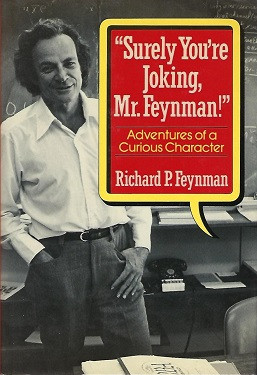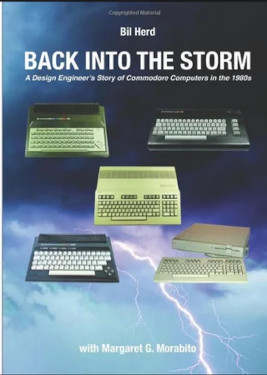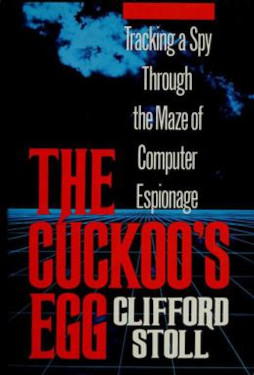If you have any empathy at all for those of us in the journalistic profession, have some pity for the poor editor at the Chicago Sun-Times, who let through an AI-generated summer reading list made up of novels which didn’t exist. The fake works all had real authors and thus looked plausible, thus we expect that librarians and booksellers throughout the paper’s distribution area were left scratching their heads as to why they’re not in the catalogue.
Here at Hackaday we’re refreshingly meat-based, so with a guarantee of no machine involvement, we’d like to present our own summer reading list. They’re none of them new works but we think you’ll find them as entertaining, informative, or downright useful as we did when we read them. What are you reading this summer?
Surely You’re Joking, Mr. Feynman!
 Richard P. Feynman was a Nobel-prize-winning American physicist whose career stretched from the nuclear weapons lab at Los Alamos in the 1940s to the report on the Challenger shuttle disaster in the 1980s, along the way working at the boundaries of quantum physics. He was also something of a character, and that side of him comes through in this book based on a series of taped interviews he gave.
Richard P. Feynman was a Nobel-prize-winning American physicist whose career stretched from the nuclear weapons lab at Los Alamos in the 1940s to the report on the Challenger shuttle disaster in the 1980s, along the way working at the boundaries of quantum physics. He was also something of a character, and that side of him comes through in this book based on a series of taped interviews he gave.
We follow him from his childhood when he convinced his friends he could see into the future by picking up their favourite show from a distant station that broadcast it at an earlier time, to Los Alamos where he confuses security guards by escaping through a hole in the fence, and breaks into his colleagues’ safes. I first read this book thirty years ago, and every time I read it again I still find it witty and interesting. A definite on the Hackaday reading list!
Back Into The Storm
 A lot of us are fascinated by the world of 1980s retrocomputers, and here at Hackaday we’re fortunate to have among our colleagues a number of people who were there as it happened, and who made significant contributions to the era.
A lot of us are fascinated by the world of 1980s retrocomputers, and here at Hackaday we’re fortunate to have among our colleagues a number of people who were there as it happened, and who made significant contributions to the era.
Among them is Bil Herd, whose account of his time working at Jack Tramiel’s Commodore from the early to mid 1980s capture much more than just the technology involved. It’s at the same time an an insider’s view of a famous manufacturer and a tale redolent with the frenetic excesses of that moment in computing history. The trade shows and red-eye flights, the shonky prototypes demonstrated to the world, and the many might-have-been machines which were killed by the company’s dismal marketing are all recounted with a survivor’s eye, and really give a feeling for the time. We reviewed it in 2021, and it’s still very readable today.
The Cuckoo’s Egg
 In the mid 1980s, Cliff Stoll was a junior academic working as a university sysadmin, whose job was maintaining the system that charged for access to their timesharing system. Chasing a minor discrepancy in this financial system led him to discover an unauthorised user, which in turn led him down a rabbit-hole of computer detective work chasing an international blackhat that’s worthy of James Bond.
In the mid 1980s, Cliff Stoll was a junior academic working as a university sysadmin, whose job was maintaining the system that charged for access to their timesharing system. Chasing a minor discrepancy in this financial system led him to discover an unauthorised user, which in turn led him down a rabbit-hole of computer detective work chasing an international blackhat that’s worthy of James Bond.
This book is one of the more famous break-out novels about the world of hacking, and is readable because of its combination of story telling and the wildly diverse worlds in which it takes place. From the hippyish halls of learning to three letter agencies, where he gets into trouble for using a TOP SECRET stamp, it will command your attention from cover to cover. We reviewed it back in 2017 and it was already a couple of decades old then, but it’s a book which doesn’t age.
The Code Book
 Here’s another older book, this time Simon Singh’s popular mathematics hit, The Code Book. It’s a history of cryptography from Roman and medieval cyphers to the quantum computer, and where its value lies is in providing comprehensible explanations of how each one works.
Here’s another older book, this time Simon Singh’s popular mathematics hit, The Code Book. It’s a history of cryptography from Roman and medieval cyphers to the quantum computer, and where its value lies is in providing comprehensible explanations of how each one works.
Few of us need to know the inner workings of RSA or the Vigniere square in our everyday lives, but we live in a world underpinned by encryption. This book provides a very readable introduction, and much more than a mere bluffers guide, to help you navigate it.
The above are just a small selection of light summer reading that we’ve been entertained by over the years, and we hope that you will enjoy them. But you will have your own selections too, would you care to share them with us?
Header image: Sheila Sund, CC BY 2.0.
















In similar vein, there’s also https://en.wikipedia.org/wiki/The_Soul_of_a_New_Machine
“Tracy Kidder’s riveting story of one company’s efforts to bring a new microcomputer to market won both the Pulitzer Prize and the National Book Award and has become essential reading for understanding the history of the American tech industry.” (Goodreads)
+1, er, +8000
I worked there and knew some of those guys. My copy has Tom West’s signature stamp (he wouldn’t sign them himself) on the inside
“have some pity for the poor editor at the Chicago Sun-Times, who let through an AI-generated summer reading list made up of novels which didn’t exist.”
Have pitty on an editor that didn’t even do their job?
I’m beginning to think the problem isn’t AI; that AI is actually highlighting how completely $&@$&@ the industry is and has been for a while.
Yeah journalism is fake as hell. Significantly more than a Pareto distribution is cooked
Not every journalism is fake as hell. There are still more than enough good journalists out there the problem is there is so much fake news with AI generated images going around on social media that people no longer know what to believe and judge everything based upon their own bad experiences. The fact that AI learns and feeds upon that data and it’s comments doesn’t help in any way.
Another problem can be that some journalists and/or newsreaders are not fully objective.
Can’t help but wonder if the editor decided to use AI, or was instructed to use AI… Did they fall or were they pushed?
The editor received the AI from someone else.
Effectively highlighting the editor didn’t actually review any of the work themselves.
Just wanted to point out that “Surely you’re joking, Mr. Feynman” isn’t a book about science or technology, and wasn’t written by Feynman. It’s a collection of widely exaggerated humorous stories relayed second-hand from a friend of Feynman’s. And while they can be entertaining stories, this book always perplexes me when it’s on a recommended list. There’s no real insights, technology or science in it, but there IS plenty of misogyny and evidence Feynman behaved like a borderline sociopathic.
If you want an excellent, in-depth look (2+ hour) at all books that Feynman didn’t write, but is credited for, here’s a video by physicist Angela Collier: https://youtu.be/TwKpj2ISQAc?si=7-RmaNgIGTC3g0uP
Or course someone would come along and judge.
He had balls!
Liked nudie bars, worked there sometimes!
Burn him!
Personally I recommend searching for ‘Richard Feynman Sociology’.
If you can watch that and still believe sociology is a science, you are dumb.
That’s an over-reaction, I just provided context for someone who might want to read the book. Just let a reader decide if the “entertaining stories” outweighs the creep behavior. Easy to google and see that it goes way beyond “liking nudie bars”…
Sociology is one of the liberal arts majors that mistakes itself for science by using the 3rd math that also happens to be loved by the politicians. Sociology is quite good at convincing other liberal arts majors it is more sciency then they are (so-called “political science” – looking at you).
While not exacting sociology does explain a lot of human insane behavior
Who said anything about sociology?
It sure makes me wonder what sociology has to say about your fixation with sociology.
just had a flashback to nu-atheist internet ca 2013.
I cannot agree more, this is an excellent video – as all of hers are – in fact, I came here to comment about this exact video lol
Reddit is down the hall, to the left
I enjoyed the book, but remember Feynman more for his comment in his appendix to the Challenger report:
“For a successful technology, reality must take precedence over public relations, for nature cannot be fooled.”
Words to live by, indeed.
A two hour and 48 minute video. Comments below it:
“If you want to appreciate Feynman’s science, read James Gleick’s book Genius. There you’ll discover there was nothing sham about his science. This video is extraordinarily shallow.”
“This is such a good point. I should have read at least one book before posting a video. Damn. Ya got me.”
Woah, hey man. Spoiler alert!
“Just wanted to point out that “Surely you’re joking, Mr. Feynman” isn’t a book about science or technology, and wasn’t written by Feynman.”
It is in fact a book about science or technology and was in fact “written by Feynman”. Take a breath next time before you go Full Sheldon.
I really got to get Bill Herd’s book. That was kind of a one of a kind event.
Plus I doubt people find ancient Greece or archaeology from space (remote sensing) interesting.
I sure do. Any more info on this?
I second “Surely you’e joking Mr. Fineman” (pun intended – OF COURSE, it’s Mr. Feynman). Plenty of good stories there, one of my favorites is teaching ants, marching into the dorm room, how to turn around and march right back out. (as a side note, I’d wish we’d elect Mr. Feynman as our prez – so he can train the two-term politicians to march right out one the last day of the second term).
Sadly, a LOT of very good reads are left out, but I’ll leave filling the gaps/blanks as the exercise for the reader.
(off the top of my head, “The Brief History Of Time Keeping” – easy reading at the level of a 4th grader, “The Life of a Leaf” – excellent treatise by a retired biologist turned mechanical engineer of sorts, “The Discovery of France” – how mapping the France project, yes, the three generations of Cassinis, discovered regions that were mostly unknown, “The Seven Mysteries of Life”, oldie but goodie, should have been made into the middle school textbook in the 1970s, however seem to be outdated now, of course, mandatory “Guns, Germs and Steel”, though I’d follow that with “Technopoly” and “The Brain that Changes itself” to make sure we don’t get lost in the hypothesis/trees for the forest)
The list isn’t complete without at least a few books by Tom Standage. “The Victorian Internet”, “A Brief History of Motion” and “The Mechanical Turk” are great ones to start with.
I wouldn’t recommend “The Cuckoo’s Egg” to anyone. There are much better reads out there. Steve Levy’s “Hackers” comes immediately to mind.
You would unrecommend it for what reason?
It’s a well written history of hacker culture, starting with MIT’s TMRC up through the Altair and the Apple I. The copy I have is so dog-eared I’m surprised it hasn’t fallen apart.
Sorry, this is in reference to why to read “Hackers”, not a comment on “The Cuckoo’s Egg.” I’ve also read that and thoroughly enjoyed it.
The Cuckoos Egg is actually good; you’re biggest problem is probably that isn’t so much a computer nerd, but an astronomer forced into being a sysadmin / account manager.
Yup.
I’ll note that Cliff Stoll is still around, and in his spare time he sells Klein Bottles on the internet via ACME Klein Bottles.
Even better, he stores them under the floor of his home and has developed a robot to retrieve them when he needs to dispatch an order
As seen here before: https://hackaday.com/2015/06/24/crawlspace-warehouse-includes-midget-forklift/
+1 for Levy’s “Hackers”.
An oldie but a goodie: The Codebreakers by David Kahn. And I’m waiting to read The Globemakers by Peter Bellerby. Asimov’s I, Robot. Crypto by Steven Levy covers a period not so long ago when the US government thought they could control encryption, and how the open source community fought and won.
SUNBURST and LUMINARY by Don Eyles — the story of what had to be the best first job out of college, ever — writing code that went into the APOLLO LEM guidance computer.
Perhaps part of the problem is that “bestsellers” and “book lists” are now made up of all this formulaic dreck that can be mistaken for AI-generated slop in the first place… This is basically not too different from what you are assaulted with if you ever walk into most physical bookstores. Stacks and stacks of this stuff that literally nobody reads, but it’s pumped out every year anyway.
The silicon artificial mind generating these titles is indistinguishable from the carbon artificial minds generating the real books. The only problem is they didn’t task the AI with actually writing the books so that people could find them and purchase them, and then never read them, because who the heck would wanna waste their one and only precious life reading a climate fiction novel by a Chilean American novelist? Yuck!
Instead of risking list of fakes from AI, Jenny prompted natural intelligence with one prompt like “here are old books I like – propose me some new”. Definitely a hack :)
“The last man who knew everything: The life and times of Enrico Fermi, father of the nuclear age” – David N. Schwartz
“Everybody Lies: Big Data, New Data, and What the Internet Can Tell Us About Who We Really Are” – Seth Stephens-Davidowitz
“Practical Doomsday: A User’s Guide to the End of the World” – Michal Zalewski (on my list to read)
And some old titles:
“The Hacker Crackdown: Law and Disorder on the Electronic Frontier” – Bruce Sterling (big thanks thanks to HAD commenter for recommending it)
“Parkinson’s Law” – C. Northcote Parkinson
“Practical Doomsday: A User’s Guide to the End of the World” – Michal Zalewski (on my list to read)
Don’t ait too long :-~
BTW – can anyone suggest me a book about game theory? I mean something introductory that will give me a sense of it?
@Antron Argaiv
Thanks.
The Perfectionists: How Precision Engineers Created the Modern World by Simon Winchester is interesting, fun and engaging. Not hacking per se, but no hacker would fail to appreciate this great book!
One of my favorites. The audio book version is narrated by the author, and his wonderful British accent makes the book even more engaging.
“This book is one of the more famous break-out novels”
Stop. It’s not a novel. If you’re going to write about books you should know about words.
Ooh, I don’t remember you among my colleagues during my five years working for the Oxford Dictionaries!
Thank you for your sterling meat based work
Why read a dead tree book when you can upload an entire library to a google notebook and converse with it about the parts that interest you, or browse the meta index that is the mind map generated from all of the sources combined?
… “Why read a dead tree book ….”
There are many reasons, the majority of which give me more pleasure than ” conversing with it “(google)” about the parts which interest me”. I would much rather speak to a person and receive not only audio but all the myriad extra signals which result from being a human – the facial expressions, the body language, the multiple subtleties of emotions. And why not say the word ‘paper’ instead of ‘dead tree’ ? It’s not even correct as paper contains many more materials than plain pieces of wood, all of which can add to the almost sensual experience of handling a beautifully constructed book. Books don’t require power to operate, they exist in the real world rather than as an often ephemeral construct of semiconductors. They are multiply redundant – even when badly damaged they can still be read and used for their information content. Drill a hole in a book and it still works, drill a hole in a 64gb memory card and see how far you get.
But, most of all, books, libraries, shelves, book shops all offer a massive opportunity for serendipity. Spend an hour in a second hand bookshop and feel your life expand with randomly supplied possibilities. Try that with a google algorithm supplying you with information based on what you have already defined as interesting.
I am sorry if this reads as a criticism of how you view the informational world but it seems to me to be a very sterile way of looking at a massive resource. As someone said “Google is a truck stop to let you refuel with a burger and see where the next public lavatories are. Books are a Michelin two star rated restaurant with a talented chef cooking with fresh ingredients and absolutely no monosodium glutamate
Best regards
Dave Gee